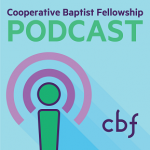By Ryan Clark
On April 13, Netflix will release the movie Come Sunday, and you must watch it to the end because you need to understand the kind of torment your pastor experiences.
Your preacher may not experience the same torment that Pentecostal Bishop and mega-church Pastor Carlton Pearson experienced in the 1990’s, but I promise your pastor’s joy and pain spans just as treacherous a desert.
Based on true events, Tulsa mega-church pastor Carlton Pearson is engulfed in a crisis of conscience when the voice of God comes to him revealing an interpretation of Scripture that gets him branded a modern-day heretic. (Spoiler alert) After fasting and weighing different passages of the Bible, he publicly concludes that those being murdered and starved to death during the Rwandan Genocide will meet Jesus in heaven and not spend eternity in hell even though they haven’t consciously professed Christ — because Jesus’ atonement was once and for all — and that includes those people too.
You don’t need a huge imagination to visualize what might happen when a world-renown preacher and Oral Roberts confidant starts down the road of preaching that conversion isn’t necessary. You can imagine it, but you need to experience it in this film.
Your pastor’s issues are not the same, or may not even be similar. But you better believe that your pastor is tormented by interpreting the witness of Scripture and pastoring in modern society — in our society. If your pastor has a family, she or he must also cultivate the hedge of God’s protection around the family from the many incursions of Christ’s own bride. You need to have a sense of how many undershirts your pastor ruins with seeped anxiety sweat as the hours of life’s pains are brought and laid bare in hospital rooms and coffee shops.
Most regular people (those not institutionalized by religious education and pastoral responsibilities, who my wife calls “non-professional Christians”) are capable of shrugging off confusing Bible passages because moments later their life will be filled with a hundred important responsibilities and decisions that don’t hinge on which Greek manuscript was used or what denominational HQ recently decided.
Regular people can take a break when church is too this or too that or just too much and you “just can’t” anymore. Some of my friends would be aghast to hear me admit that a human doesn’t need her or his own systematic theology in order to function in life from day to day.
We all need confidence that there is a reason for all this, which is where Bishop Pearson gets in trouble. You and I certainly need to have a sense of purpose or a “philosophy of life,” and for many, this purpose is grounded in Jesus and a conversion to his Way. So if being born-again is optional, then like the confused congregants at Higher Dimensions Church, there would seem to be no point.
I’m curious; do you feel that your point needs to be the same as your pastor’s point? Do you need to feel that your reason for living and faith-ing is the same as those you worship with?
I don’t pastor in the traditional sense. I do meet regularly with clergy both formally and informally — and I’m going to tell you a little secret.
I think regular people interpret their preacher’s resilience in the pulpit as agreement with their congregation. The minister bands with tension our many truths: our confessions, celebrations, ambitions, politics, beliefs and worship preferences. This is normal. After all, the Body of Christ has many parts. But we must also acknowledge and begin addressing the pain we inflict on clergy and other helpers when too many of us live contrary to our core purpose or behave as though we’ve lost our main point. Christian self-help book sales have something to say about this.
The pastor’s torment is partly due to things like knowing secrets about the text and history that regular people don’t.
The plague I hear about most often is having to minister in a congregation that too regularly fails to behave in a manner consistent with its core beliefs, a reality which impacts everything from committee meetings to public perceptions that leave media outlets wondering what our American religion really is.
Bishop Carlton is certainly responsible for his own behavior and as Jason Segal’s character reminds him, he should have used some group discernment before making pronouncements from the pulpit. The famous preacher replies he thought he was doing that on Sunday morning with the entire church. I can’t tell if Bishop Carlton regrets his decision to be completely open and honest with everyone as he emotionally listens to an auctioneer sell off the organ, drums and microphones.
Watch Come Sunday and when you do, don’t imagine you were a member of his church. Imagine what it would be like to be Carlton Pearson. Imagine what it might be like to be your pastor. And then email your thoughts; I’d love to hear them.
Ryan Clark serves as the Manager of Global Resources for the Cooperative Baptist Fellowship. You can contact him at [email protected].
Note: The views expressed here in columns and commentaries are solely those of the authors.
Interested in writing for CBF at Patheos? Submit your column idea to CBF Communications Director Aaron Weaver at [email protected].










